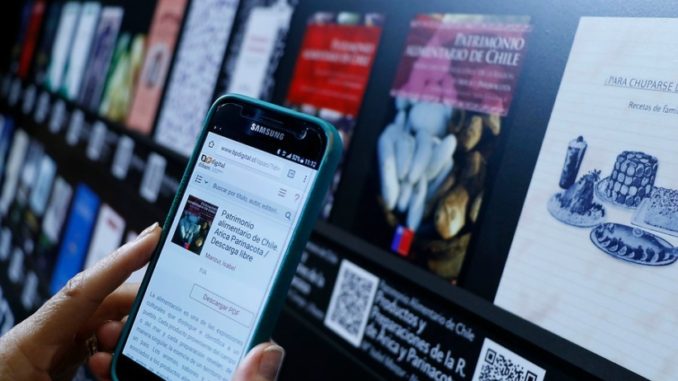
SANTIAGO – Chile’s first digital Bibliometro has added three new loan points to the 20 existing points in the network, which since its creation in 1996 has lent more than five million books to more than 55 thousand active users.
The Inés de Suárez, Nuñoa and Cerrillos stations on Line 6 of the Metro now have new loan points with book dispensing machines, under the self-care modality. New reading spaces include downloads of digital books for mobile phones and tablets through QR code scanning.

This allows service users to check out books with the same ease with which they can buy a soft drink, coffee or candy in a vending machine.

Each dispenser allows readers to choose between 16 titles, with 10 copies each, and their replacement will be carried out as the books are being ordered.

To use the service it is necessary to be registered as a member of the service, which gives them the possibility to make up to 7 loans for 14 renewable days in any other Bibliometro point.
Decían que a las personas no les gustaba leer… Este es el @Bibliometro digital de la estación Ñuñoa. ???? Decían… pic.twitter.com/4pjA07GpyA
— Metro de Santiago (@metrodesantiago) February 7, 2018
“With these three new points we continue in the line of facilitating access to books and reading to the community. And just as the cars of this new Metro Line 6 have managed to transfer and connect new passengers, our service will also allow more people to connect with reading, culture and entertainment,” said Gonzalo Oyarzún, deputy director of the National Public Libraries of the Dibam.

Only in 2017, more than 300 thousand texts were lent, placing it as well as the first library in the country, next to the Library of Santiago.
¿Libros? ? ¿En máquinas dispensadoras? ?? Es la nueva era de @Bibliometro. Las máquinas de autopréstamo son únicas en Latinoamérica. Conócelas y úsalas en Inés de Suárez, Ñuñoa y Cerrillos de #L6 ? pic.twitter.com/Ttj5jHDxwP
— Metro de Santiago (@metrodesantiago) February 7, 2018
Among the offer of titles available in Bibliometro include great exponents of youth literature, school, Chilean and foreign novels. The bibliographical collection is preferably recreational, basically because one of the fundamental objectives of the program is to promote a taste for reading in the non-reading population. This is how great national and international authors will be privileged.



